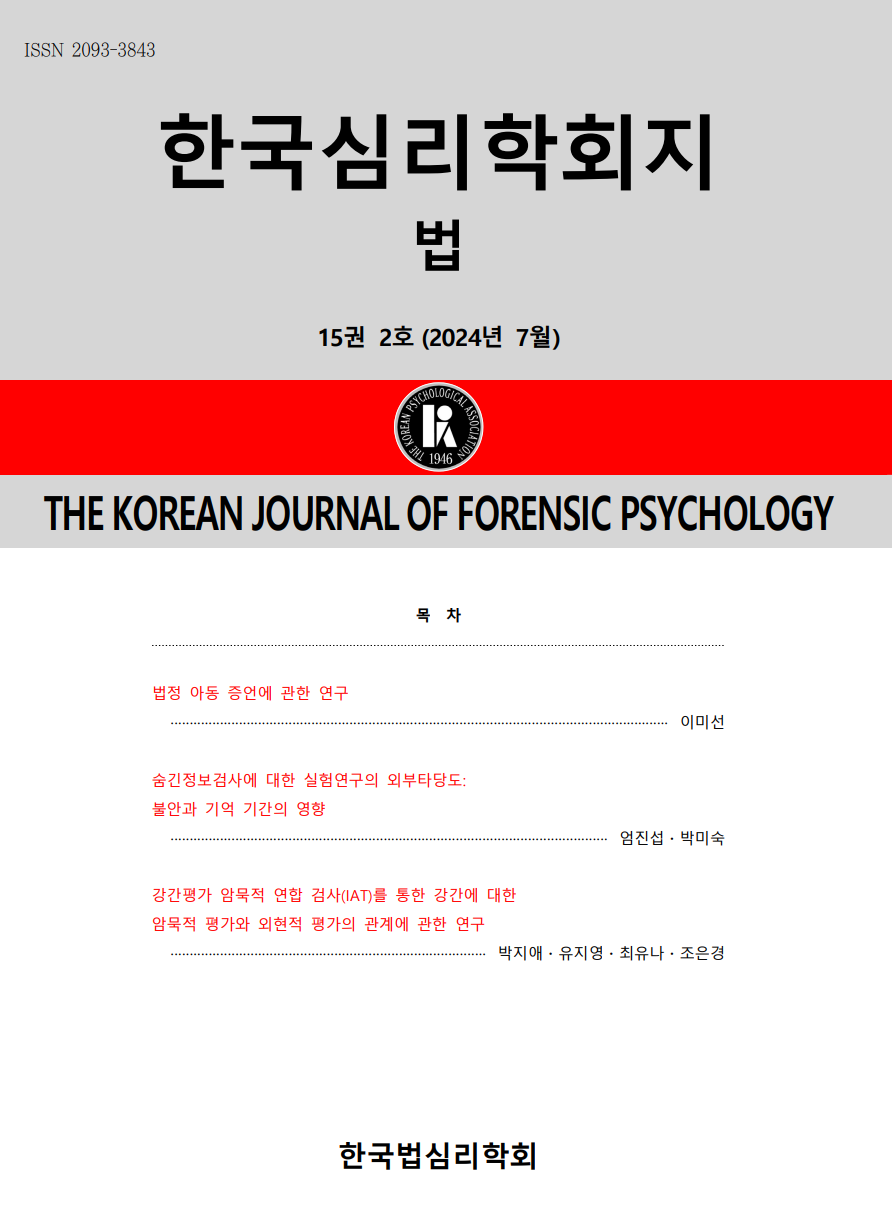open access
메뉴
open access
메뉴 ISSN : 2093-3843
ISSN : 2093-3843
The present study examined whether enhanced motivation for beating deception detection measures in people who score high on the Machiavellianism scale improves the detection efficiency of P300-based GKT. Forty-six participants chose for themselves to be deceptive or honest in a mock crime procedure based on information or feedback they would be given following the result of physiological detection. There were significant group difference in Machiavellianism scores between the guilty group and the honest group, which allowed us to confirm the fact that the people who score high on the Machiavellianism scale have predispositions for duplicity and lying over honesty. After experiencing a mock crime, the P300-based GKT was carried out. An one-way ANOVA revealed that only in guilty group, the P300 amplitude of the crime relevant item (the probe) was significantly higher than that of irrelevant items. However, when we conducted an ANCOVA by designating Machiavellianism as a covariate, this difference between the crime relevant item and the irrelevant items was not observed. This result implies that the increased motivation in manipulative people to cope with the deception measure may have an ironical role of improving the detection efficiency of the P300-based GKT.